Women Ecopreneurs in Bali Redefine Enterprise for People and Planet
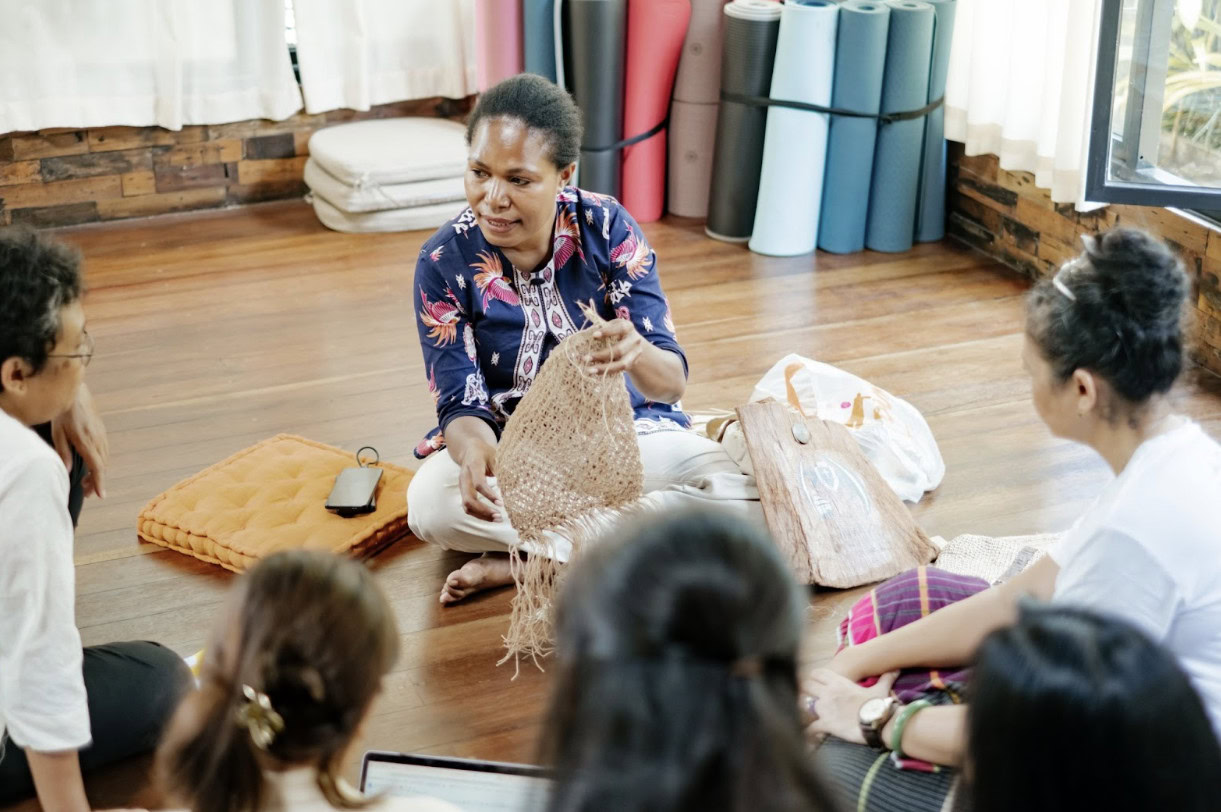
Across the world, women entrepreneurs are demonstrating that business can strengthen ecosystems and community resilience. In Indonesia, micro, small, and medium enterprises (MSMEs) contribute about 61% of the nation’s GDP and employ 97% of its workforce. Yet women entrepreneurs often face persistent barriers — from financing gaps to limited access to mentorship and markets.
The Women Ecopreneurs Lab, a partnership of Women’s Earth Alliance (WEA) and the Pratisara Bumi Foundation (PBF), was created to help shift that reality. In early October, six women-led eco-enterprises—Seratnusa, Kreuw Tangke, Martani Indonesia, Giat by Sedusun, Sambal SABAI, and Kriya Kite—gathered in Bali for a week of shared learning and collaboration, exploring how enterprise practices can align with care for people and planet.
From Exchange to Action
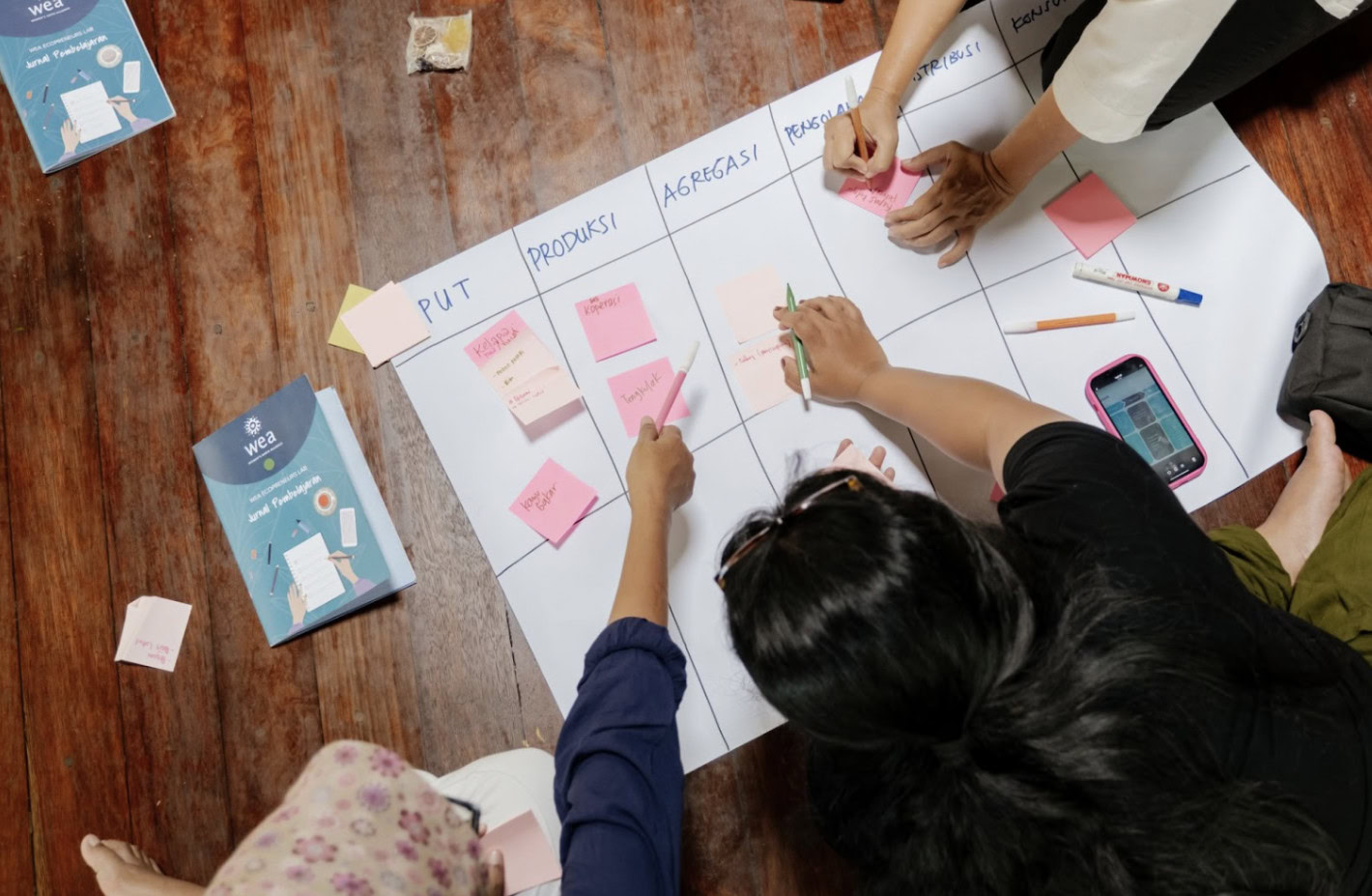
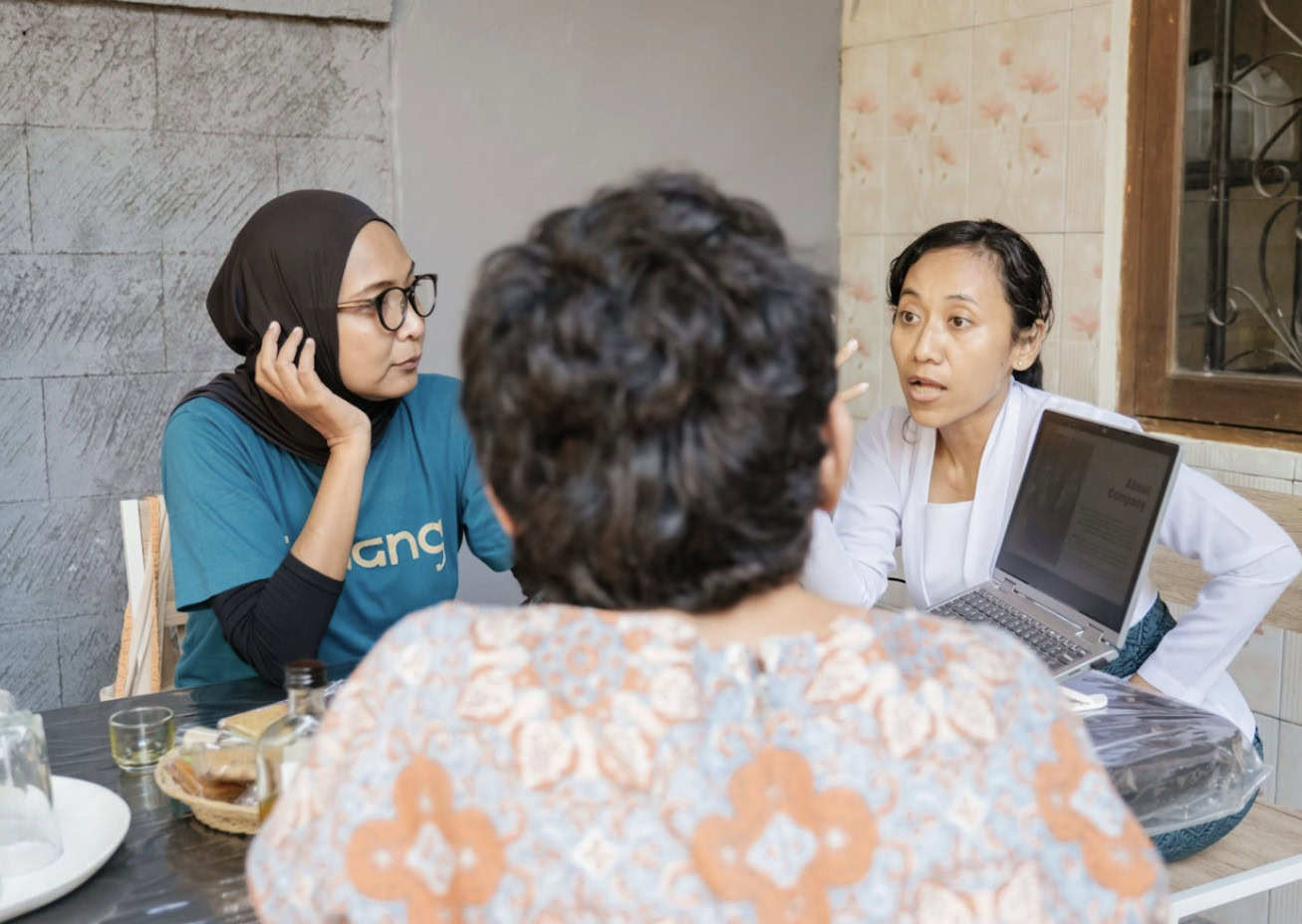
After a month of self-paced study using the WEA Eco-Entrepreneurship Toolkit (Beta Version), the cohort met in person to turn their learning into action. What began as individual journeys became a collaborative space where women entrepreneurs could test ideas, troubleshoot challenges, and exchange practical insights drawn from their lived experiences.
The Lab’s design emphasized active participation and peer connection. Guided by facilitators from WEA and PBF, each session encouraged dialogue, feedback, and collective problem-solving—an approach that not only built skills but also fostered confidence and community among the participants. This environment enabled the ecopreneurs to exchange ideas, experiences, and practical knowledge with peers leading similar or diverse eco-friendly businesses.
Learning in Motion
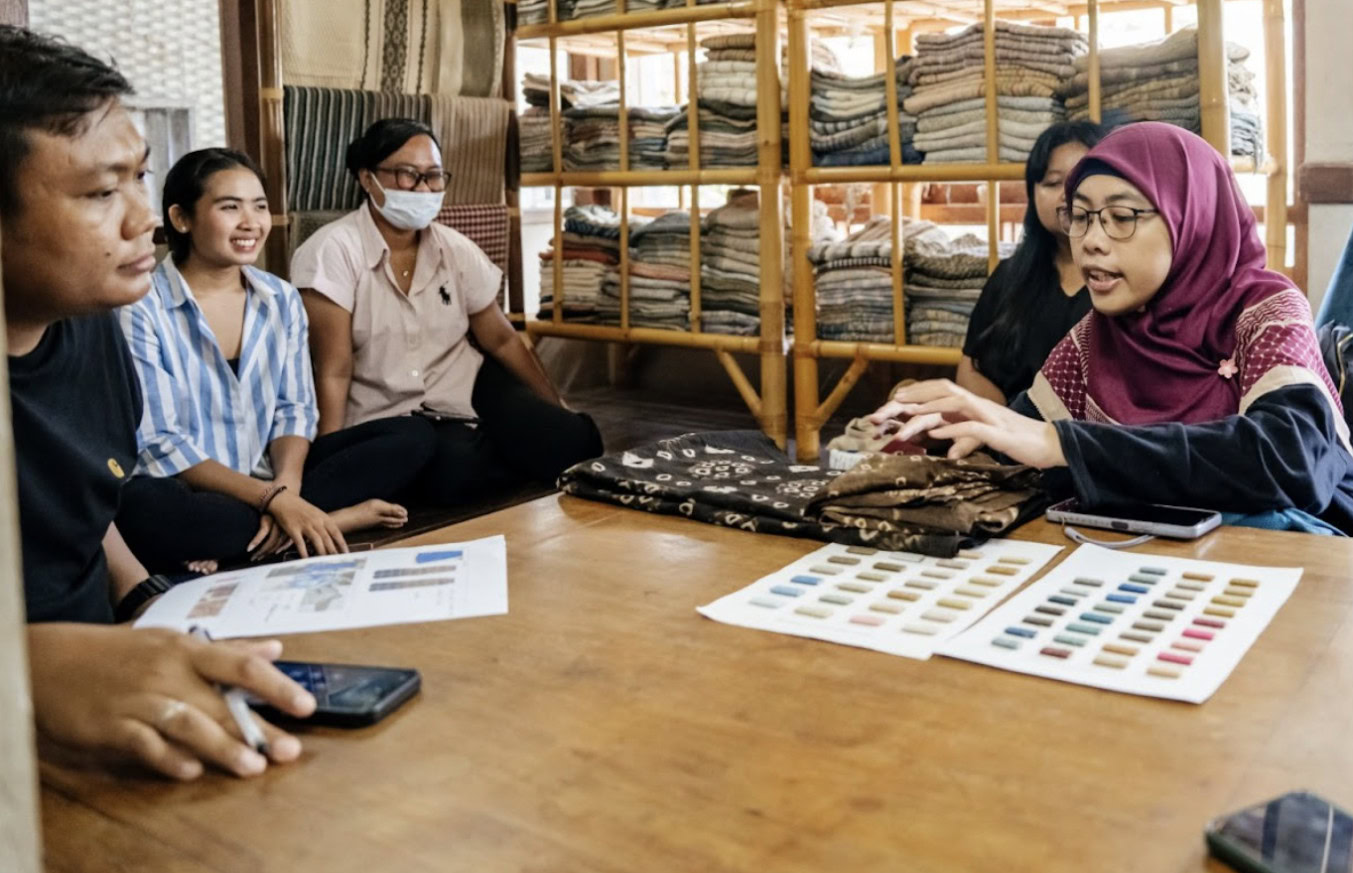
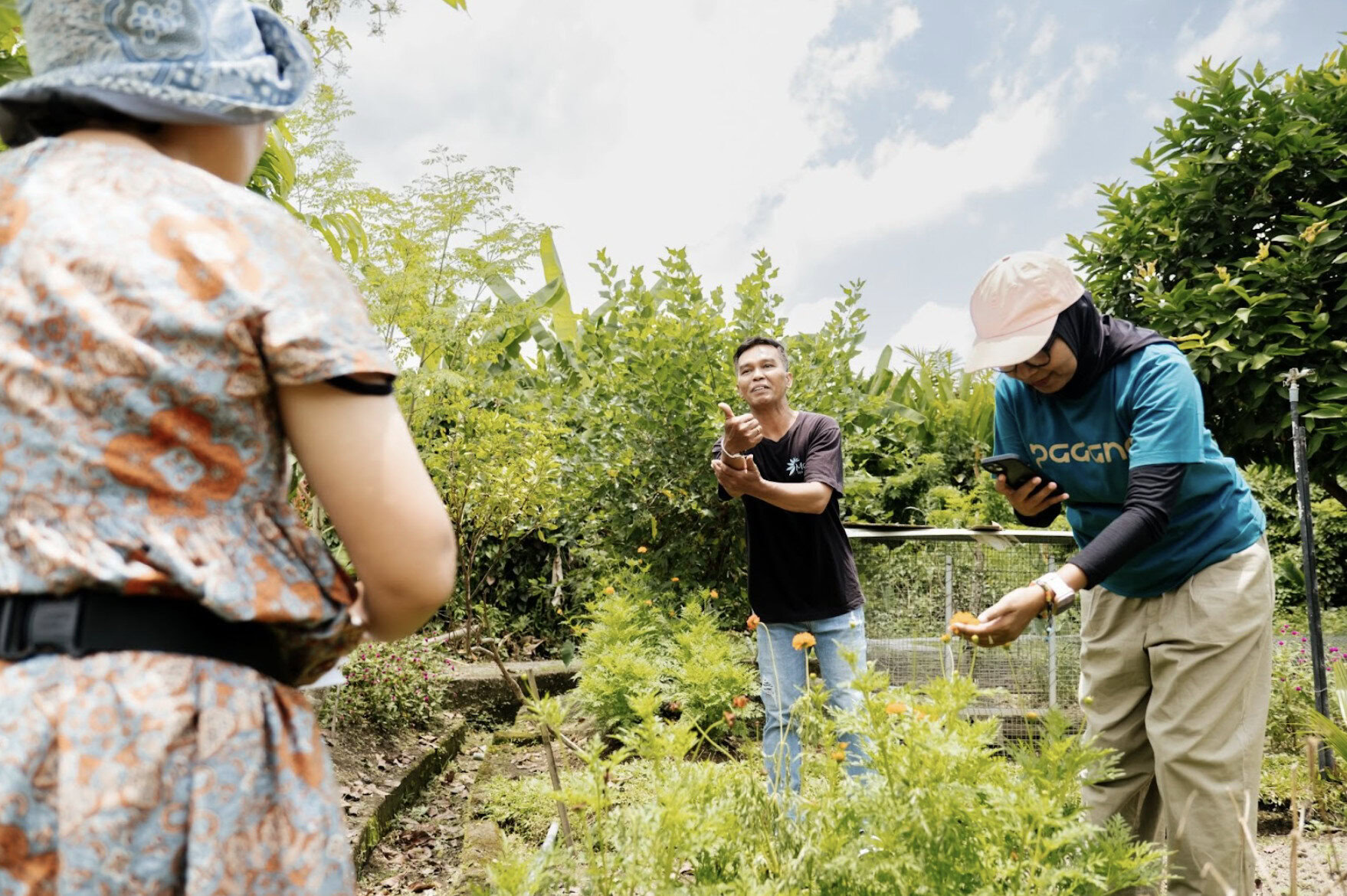
Workshops led by sustainability experts Irma Chantily (Supernova Ecosystem) and Maria Agustin (PBF) explored how ecological responsibility can guide everyday business decisions—from ethical sourcing and product design to team development.
“It was very inspiring to meet the experts. Even though our business is still small, we are doing our best to grow,” reflected Kris Meilda of Giat by Sedusun
Field visits brought these ideas to life. At Tempeman and Tarum Bali, participants witnessed sustainable production and design innovation in action. Creative sessions with Studio Kreasi Kunang and Kopernik encouraged experimentation with storytelling, aesthetics, and inclusive marketing.
“The experience I gained here can’t be learned from theory alone,” shared Rita Mustikasari of Martani Indonesia.
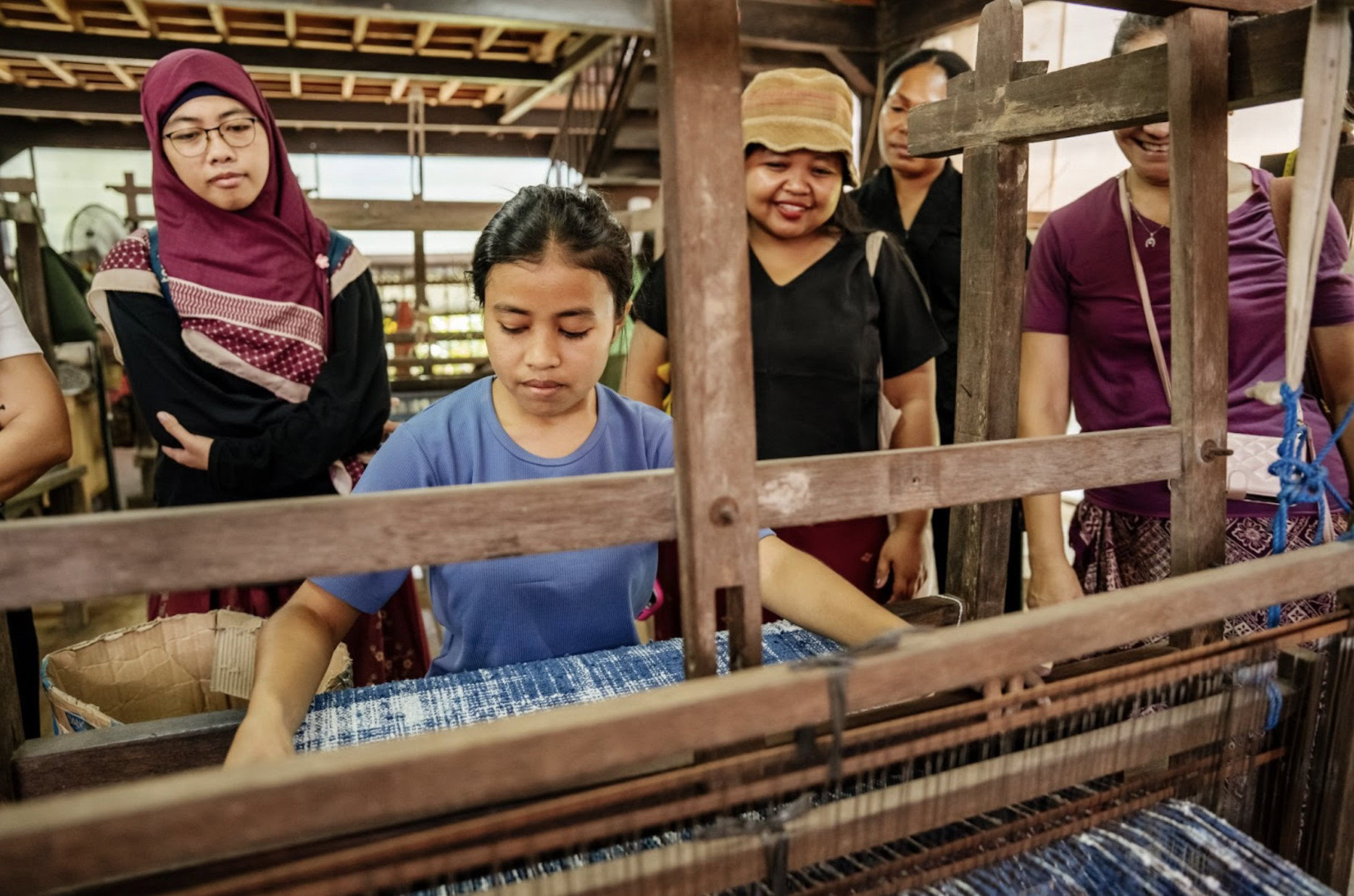
Co-Creating Better Tools
The Lab also served as a vital feedback loop for the WEA Eco-entrepreneurship Toolkit, with participants sharing reflections from their independent learning. Their feedback will help refine future versions of the Toolkit—ensuring that resources for women ecopreneurs remain accessible, relevant, and grounded in real-world practice.
By the week’s end, participants left with renewed vision, practical strategies, and strengthened networks of solidarity—contributing to a growing movement of women transforming local economies and redefining entrepreneurship as a pathway to ecological balance and collective well-being for women around the world.
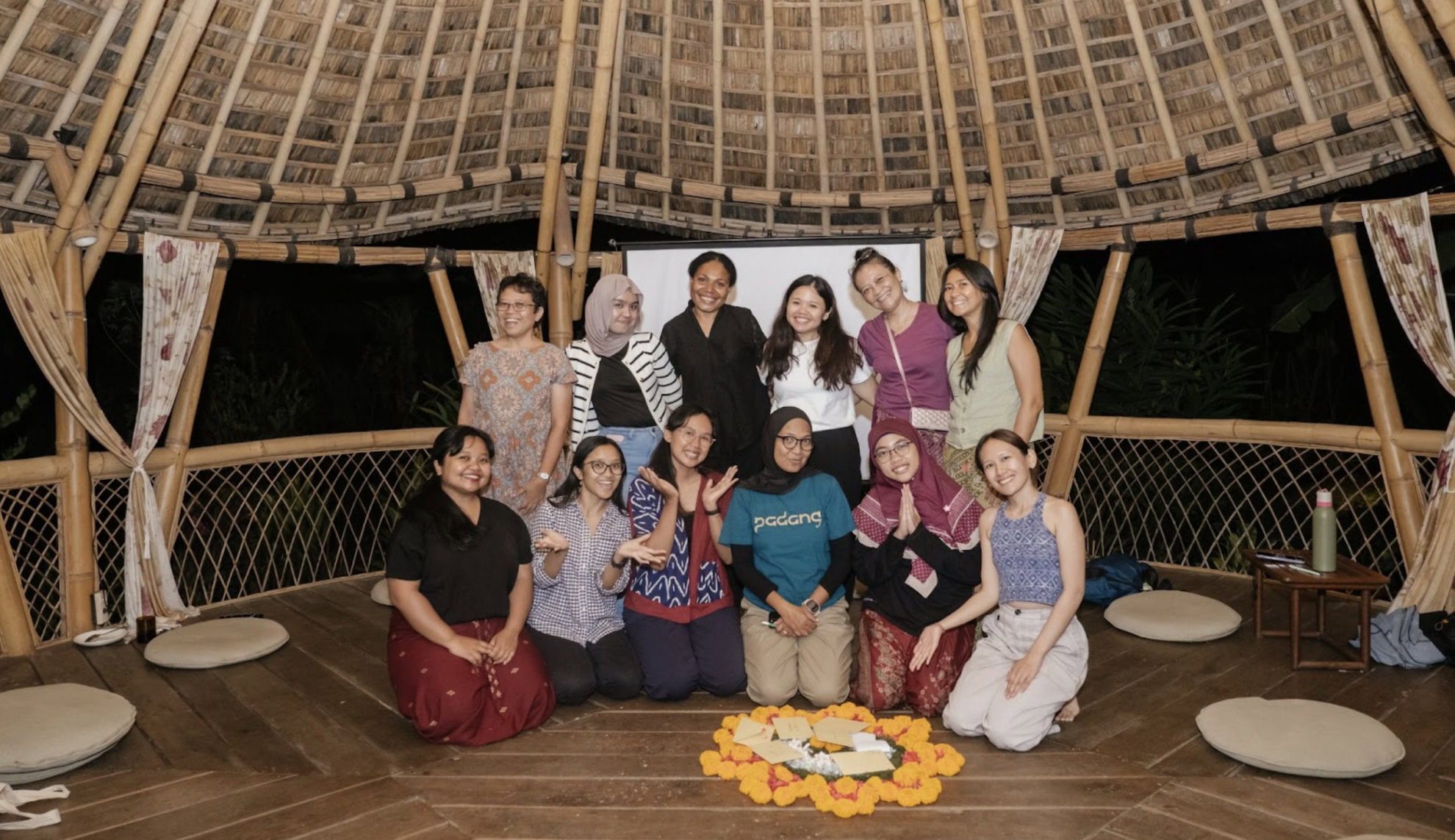
Grounded in a Global Need
Globally, the finance gap for women-owned micro, small, and medium enterprises is estimated at $1.7 trillion. The IFC’s Banking on Women Factsheet highlights how expanding financial inclusion for women entrepreneurs can accelerate economic growth and community resilience.
Programs like the Women Ecopreneurs Lab respond to this need by cultivating collaboration, peer learning, and practical tools — equipping women to strengthen both livelihoods and the living systems that sustain them.
When women thrive, the Earth thrives.
